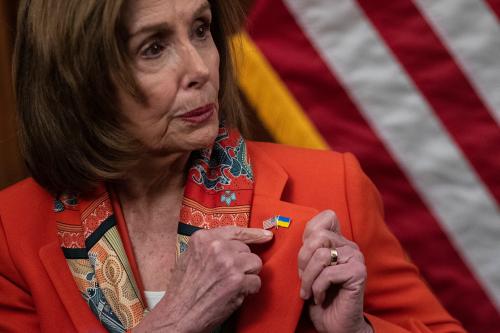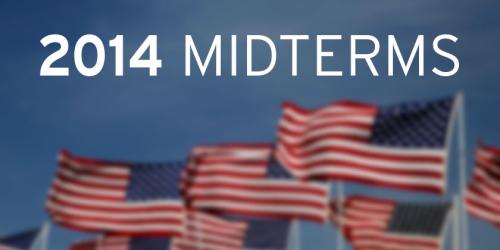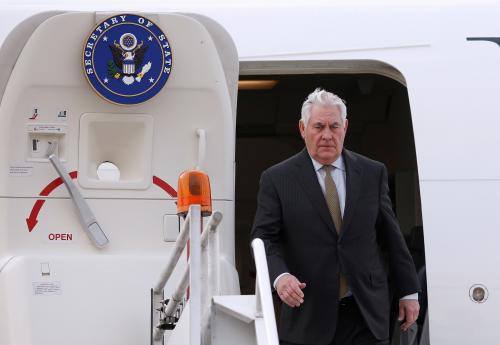This week the Senate will conduct hearings on the nominations of Rex Tillerson for secretary of state and James Mattis for secretary of defense. These public presentations are a twin opportunity to reassure America’s friends and put our potential enemies on notice that the new Administration is committed to the fundamental and long-standing values and goals of U.S. foreign and security policy. This message is especially crucial now, since the world is at an inflection point.
Over the past 70 years, America’s commanders-in-chief—six Democrats and six Republicans—had to manage crises, setbacks, and wars—both hot and cold—during their presidencies.
None of them, however, had to face on his first day in the Oval Office the welter of challenges awaiting Donald J. Trump on January 20: the simultaneous unraveling of the U.S.-led world order, loss of confidence among our allies; assertiveness of competing great powers; the dissolution of entire states; and the rise of barbarism, authoritarianism, and corrosive nationalism.
What a difference eight years can make. When President Obama took the oath of office, Syria had yet to explode with all the far-flung collateral damage that would ensue; Dimitri Medvedev was president of a Russia that still professed to be a partner of the West; the two nuclear superpowers were still in talks to reduce their arsenals; Isis meant nothing other than an Egyptian goddess and a tranquil tributary of the Thames; North Korea did not yet have a weaponized nuclear device; China, under Hu Jintao, pursued a risk-averse and mercantilist foreign policy focused on Africa, Latin America, and other developing regions, steering clear of disputes with Asian neighbors; NATO was busy pursuing its post-cold war mission; Viktor Yushchenko, the hero of the Orange Revolution, was still the president of a Ukraine that controlled all of its territory; and the European Union was preparing for enhanced cross-border collaboration and trade.
Now NATO has been targeted by Russian propaganda, bullying, subversion, and, of course, cyber aggression and disruption. Turkey, while nominally an ally, is increasingly aligned more with Russia, which has annexed Crimea and is virtually occupying parts of eastern Ukraine. The EU’s commitment to integration has given way to disintegration, and some of its eastern members have embraced an oxymoron: illiberal democracy.
Asia, too, has become a vast zone of concern: China’s unilateral prosecution of its maritime disputes with neighbors; the strains between two U.S. treaty allies, the Republic of Korea and Japan; North Korea’s determination to obtain a nuclear weapons and intercontinental ballistic missile program not as a bargaining chip but as a permanent capacity; two other U.S. allies—Thailand and the Philippines—experiencing the deterioration of democracy and a tilt toward China.
These external adverse factors are magnified by signals emitted during the 2016 election and the current transition that President Trump may loosen ties with allies, welcome various potential Euro-exits following Britain’s, develop an affinity with authoritarian regimes, accept a Russian insistence on drawing its neighbors into a sphere of “influence” (read: domination), and jettison regional and global trade pacts.
If these indications were to be translated into policy, it is all too likely that the world order as we know it would cease to exist, and America’s role would be greatly diminished to its own disadvantage.
But that is by no means inevitable. The historical record is replete with reminders that what is said on the hustings is not necessarily echoed from the bully pulpit. For example, in the late 1940s and into the 1952 campaign, Dwight Eisenhower’s adviser John Foster Dulles advocated “rolling back” Soviet gains, a policy that might have led to World War III. But as secretary of state Dulles switched to the containment strategy of his predecessor Dean Acheson. As a candidate Jimmy Carter vowed to remove U.S. troops from South Korea only to drop the idea on the forceful advice of Joint Chiefs of Staff, among others.
Tillerson and Mattis will be doing our president, our country, and our world—not to mention themselves—a favor if they leave the impression that they realize that, while the promise of radical change is an applause line during a campaign, a healthy degree of continuity is an imperative in governing our nation and maintaining our leadership in the world.






Commentary
Confirming Team Trump: Tillerson and Mattis face changing global dangers
January 10, 2017